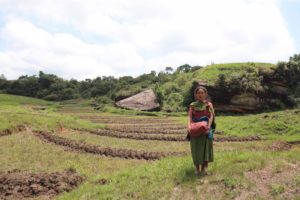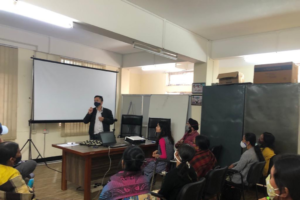‘Bees’- the Earth’s busiest and most fascinating creatures—probably don’t realise the amount of work they do, and they do more than just produce honey. While these tiny insects go about causally foraging, they pollinate a significant amount of the world’s food.
Bees and their network of beekeepers play an immense role in boosting the natural food
systems and sustaining other human-centric industries. According to the International Fund for Agricultural Development (IFAD), “In so doing, bees support countless ecosystems, bolster biodiversity, anchor food chains and help ensure humans’ agricultural security.”
Indigenous beekeeping practices at Meghalaya are socio-ecologically woven into the lives of its people. It’s carried out using indigenous ways of sheltering bee colonies and extracting their honey and beeswax. The dependence on such traditional methods is one of the reasons honey is only harvested on a small scale.
The current scenario of COVID-19 pandemic has been causing rippling consequences in
many countries and Indian states alike. We at North East Slow Food and Agrobiodiversity
Society (NESFAS) interviewed few indigenous beekeepers from across our partner
communities to find out about how they are coping with the current pandemic.
Richard Ranee: Teacher, Beekeeper and Farmer from Nongtraw, East Khasi Hills.
Being a teacher, farmer, traditional healer and part-time beekeeper, it comes naturally to
Richard to understand how important bees are to the environment and their role in sustaining biodiversity.
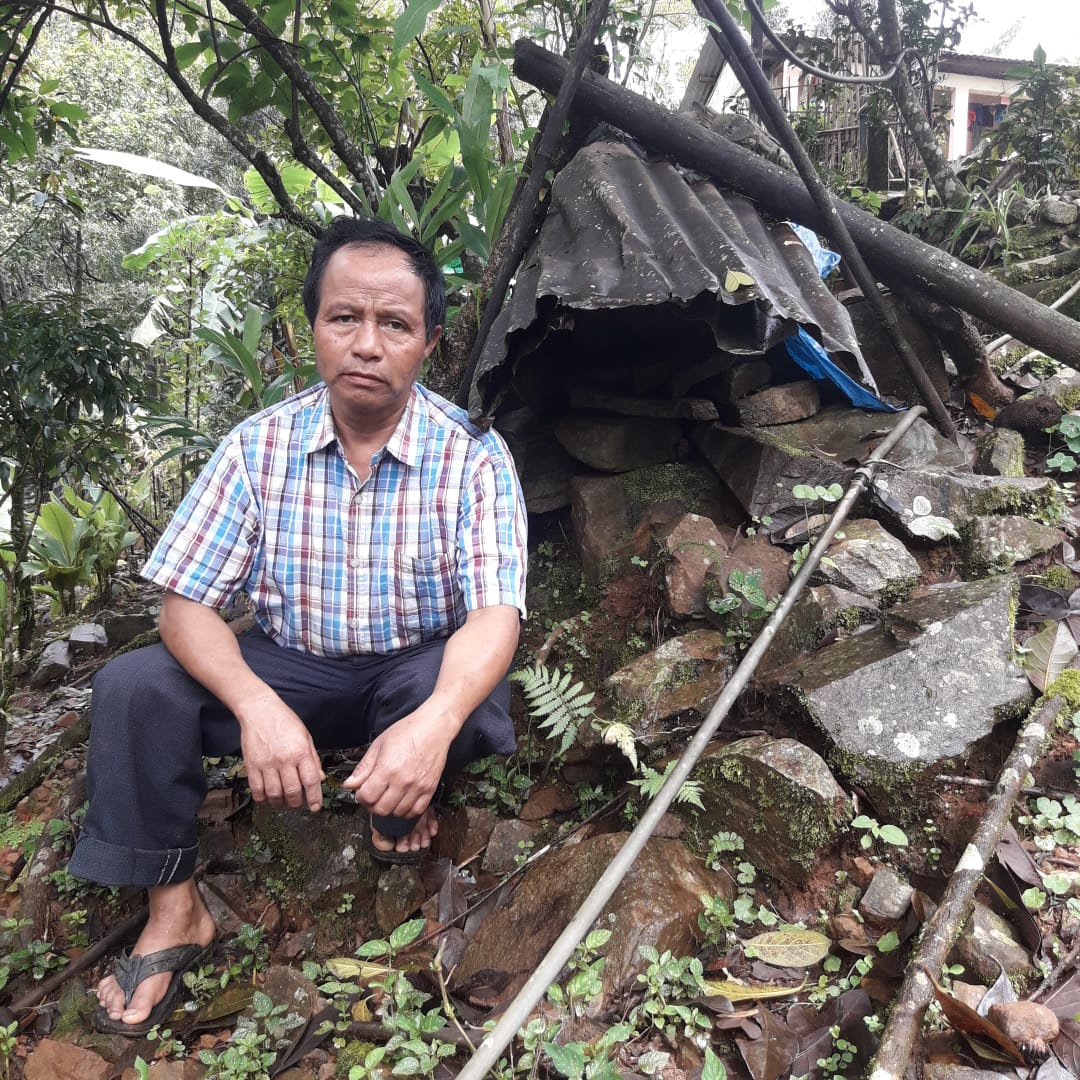
He kept on to his familial custom of natural honey extraction, out of which most of it is
utilised for his personal use and self-consumption. As the village’s traditional healer, he uses honey for its medicinal properties and sells the rest to his fellow villagers.
According to him, “Few beekeepers in my village have found it hard to transport their honey and get the correct price for it but, the bees themselves aren’t impacted by the pandemic. Rather, it’s this year’s heavy rains in July that have impacted my bee colonies and I’ve lost half of my hives (four hives).”
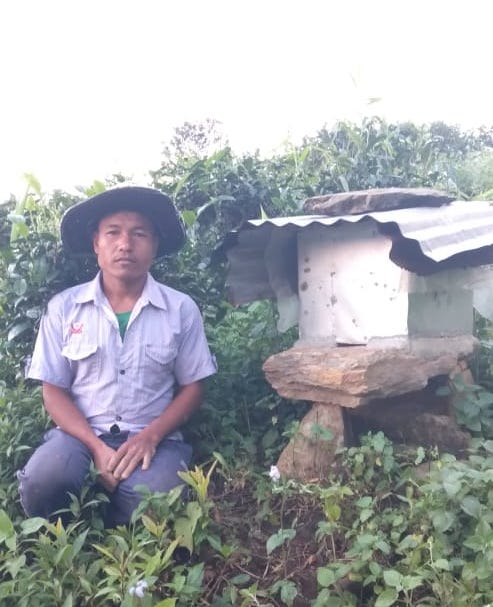
Wallam Jingkmen Pyngrope: Beekeeper from Mawpynthymmai, East Khasi Hills.
According to Wallam, his honey bees haven’t been affected by the pandemic but it has indeed impacted his ability to harvest honey and to sell it in the market.
“It’s been difficult to transport the bee boxes to the orchard fields for their nutrition or to sell the honey in the market since the COVID-19 outbreak began,” said Wallam.
On top of not being able to provide enough nutrition to his hives, he faces serious issues with ants gnawing away the food provided for his bees and destroying the hives to an extent.
He had to even sell off his harvest at low prices for minimum returns to sustain his income
generation, and take loans from his family members to stay above the waters.
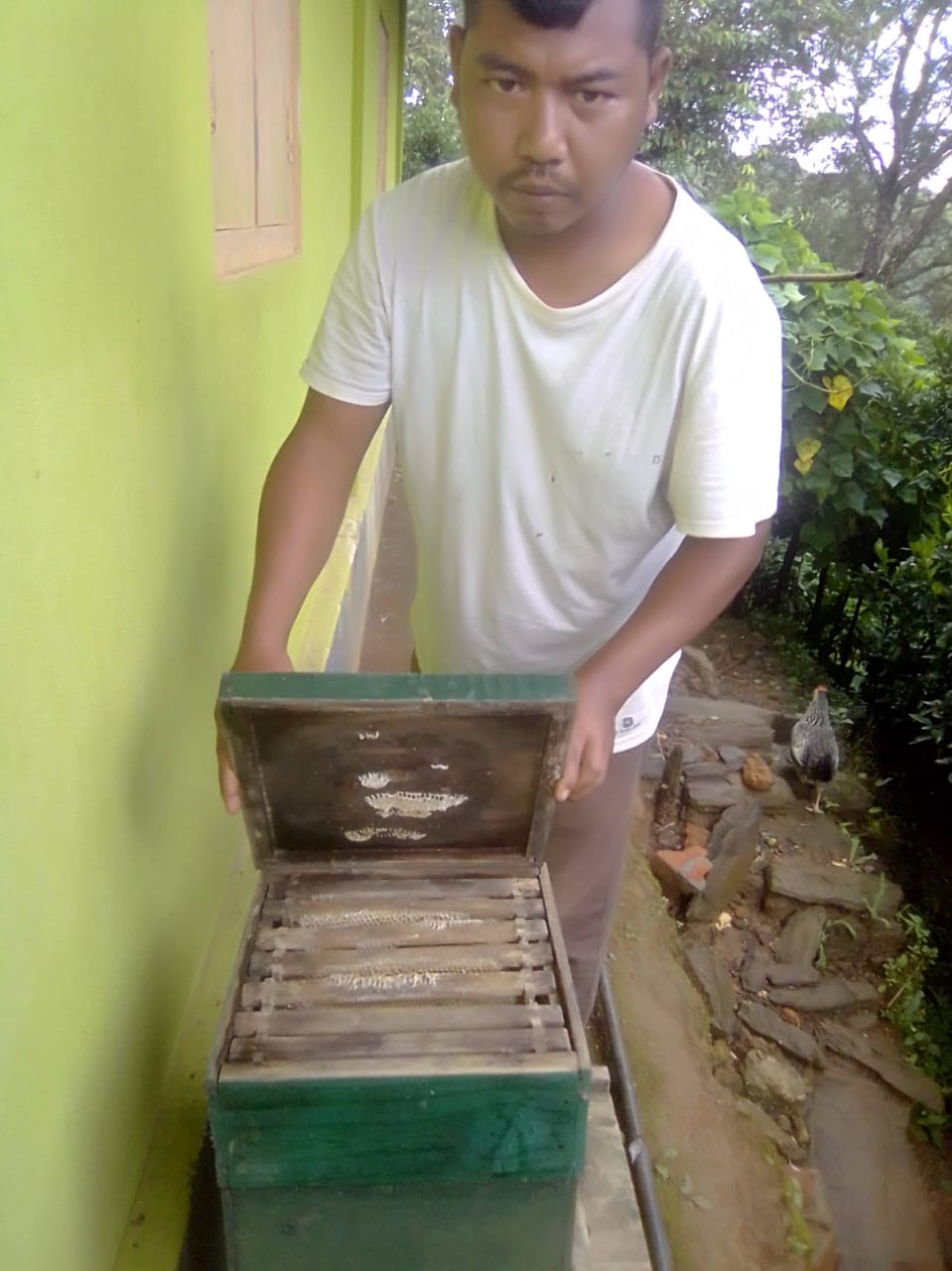
Lotsing M Sangma: Beekeeper and farmer from Daribokgre, East Garo Hills.
Right after high school, Lotsing got down to partake in farming as a livelihood measure and has been beekeeping from the past 17 years. He currently hosts all together 50 beehives, split between his farm, orange orchard and kitchen garden.He shared with us that, “Beekeepers are also vegetable farmers in Garo Hills”. People in the community don’t only depend on beekeeping as their only source of income but on other sources like an orange orchard, shifting cultivation as well.
“The current lockdown restrictions have made it difficult to market and sell our honey. Over and above, the current weather conditions are also affecting the honey extraction process,” said Lotsing. He further added, but they (Garo Hills villagers) have a plus point, where they’ve been allowed to transfer the bee boxes within 300 metres of the community boundaries in Garo Hills, where they have orange orchards.
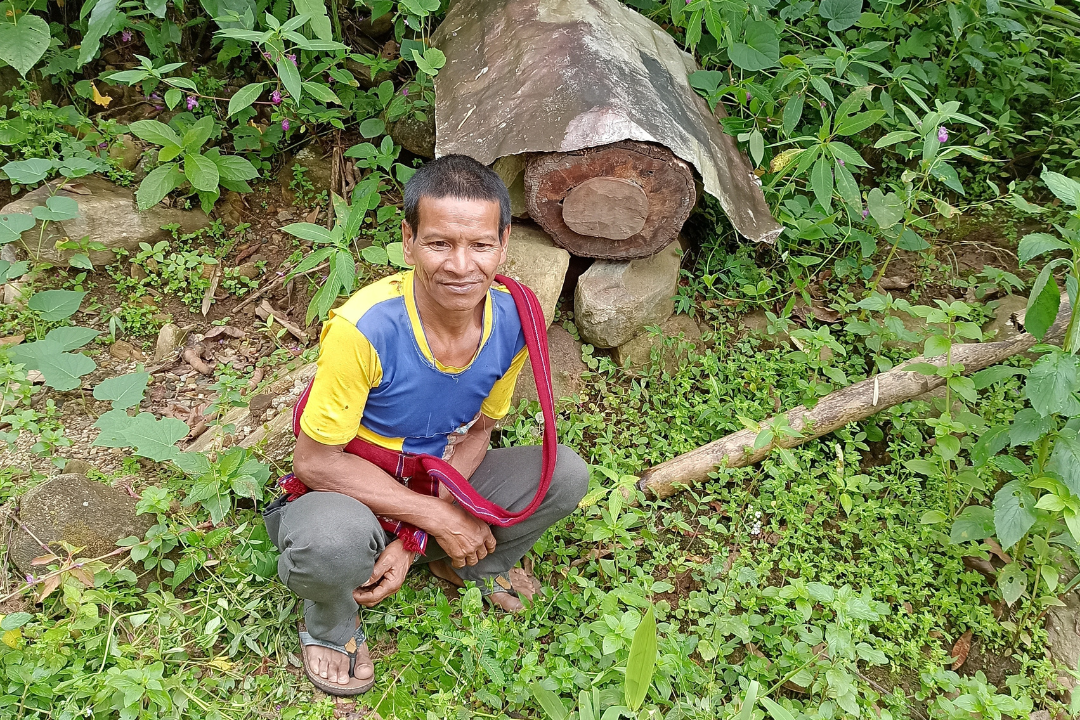
Samson Khongjoh: Beekeeper, Farmer and a Daily wager from East Khasi Hills
Samson a farmer, daily wager and a part-time beekeeper, is as busy and hardworking as a
bee. He currently owns 20 hives and strongly believes that honey holds the secret to a good
health.
According to him, depending on the beekeeping practice by itself is not yet possible. He
believes it requires a proper structure, and the lack of it leaves him no choice but to look for other ways to earn an income.
“I still have the honey stock from last year’s harvest, and since the pandemic began, we’ve
had to restrict our movements. Therefore, this summer we’ve abstained from harvesting
honey,” Samson said.
The state for the longest time has been a remote region from the rest of the country. It’s
limited in terms of market for sales of goods, transportation and connectivity.
The current pandemic is a struggle for these indigenous villages and their systems, but the
years of self-reliant communities and interdependent networks have come to be their saving grace where they learn to find solutions for their problems and uplift other surrounding them.


